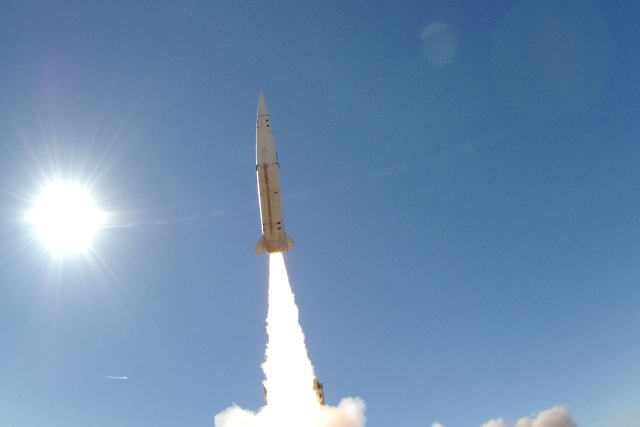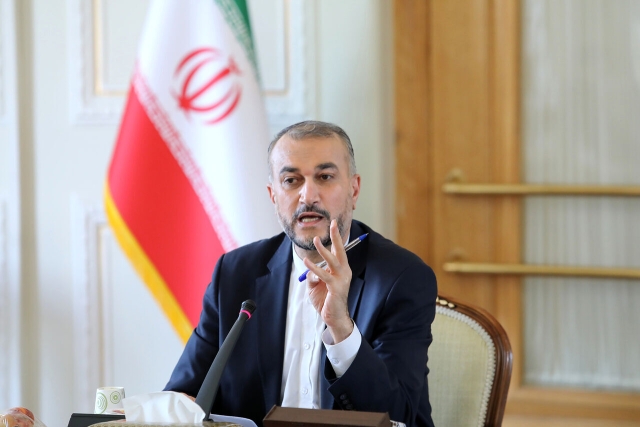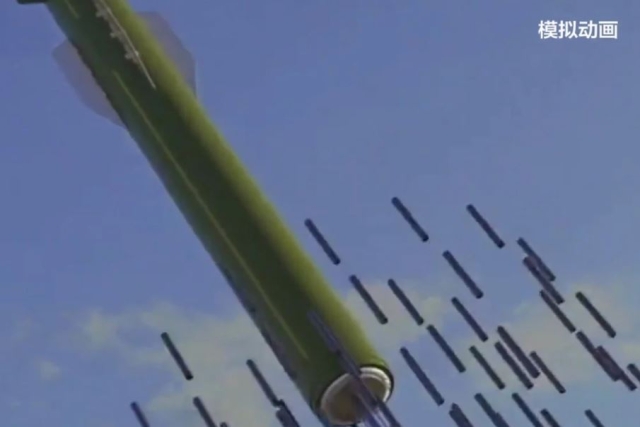Israel, Not Ukraine is Top Priority for U.S.: Senators to Zelensky
A $14.3 billion emergency aid bill for Israel has been introduced in the U.S. House of Representatives.

The United States acknowledged the challenging situation regarding artillery shells in Ukraine, but they also emphasized Israel's need for ammunition during a meeting with Ukrainian President Volodymyr Zelenskyy on Monday.
A group of U.S. Congress representatives had arrived in Kyiv the day before to meet with the leaders of the Ukrainian government. While the exact purpose of their visit to Ukraine was not officially disclosed, the primary focus of their meeting with the Ukrainian president was on military assistance from the United States. During the meeting, Zelenskyy expressed his concerns about the shortage of 155 mm artillery shells, hinting at the need for increased ammunition supplies from the United States. However, in response, he was informed that Israel was also in need of these shells.
Representative Michael Quigley stated, "We need to consider arguments for both economic and humanitarian assistance. The war has highlighted the importance of the resources we allocate to the conflict. While I understand the need for 155 mm shells in Ukraine, it's important to note that Israel also requires them."
At the same time, the American representatives commended Zelenskyy for his plans to establish local production of artillery ammunition, suggesting that it was time for Kyiv to become more self-reliant in this regard. It had been previously reported that the United States had started transporting 155-mm shells initially intended for Ukraine to Israel. Approximately 150,000 of these shells had been set aside by the Americans for unforeseen circumstances. Currently, the Ukrainian army does not face a significant shell shortage, but a shortage may arise in the near future if supplies are not replenished.
Simultaneously, a bill was introduced in the U.S. House of Representatives to provide emergency additional aid to Israel, totaling $14.3 billion, separate from other requests made by President Joe Biden for military support to Ukraine, Taiwan, and various other expenses. The document specifies, "Providing emergency additional appropriations to respond to attacks in Israel for the fiscal year ending September 30, 2024, and for other purposes."
The proposed funds allocated for Israel's needs amount to $14.3 billion, consistent with President Biden's request to Congress. However, this bill, prepared by Republicans, does not include funds for supporting other allies of the United States.
Earlier, the White House had reported that President Biden requested $61.3 billion in aid for Ukraine and $14.3 billion for Israel. He had made a televised address to the nation, urging Congress to enable uninterrupted arms supplies to Ukraine and sent an emergency budget request to the Capitol for aid to Ukraine, Israel, and other critical American allies.
Russia had previously sent a note to NATO countries regarding arms supplies to Ukraine, with Russian Foreign Minister Sergei Lavrov warning that any cargo containing weapons for Ukraine would be considered a legitimate target. The Russian Foreign Ministry accused NATO countries of "playing with fire" by providing weapons to Ukraine and asserted that it hindered Russian-Ukrainian negotiations. Lavrov also claimed that the United States and NATO were directly involved in the conflict in Ukraine, not only through weapon supplies but also by training personnel in countries such as Great Britain, Germany, and Italy.













